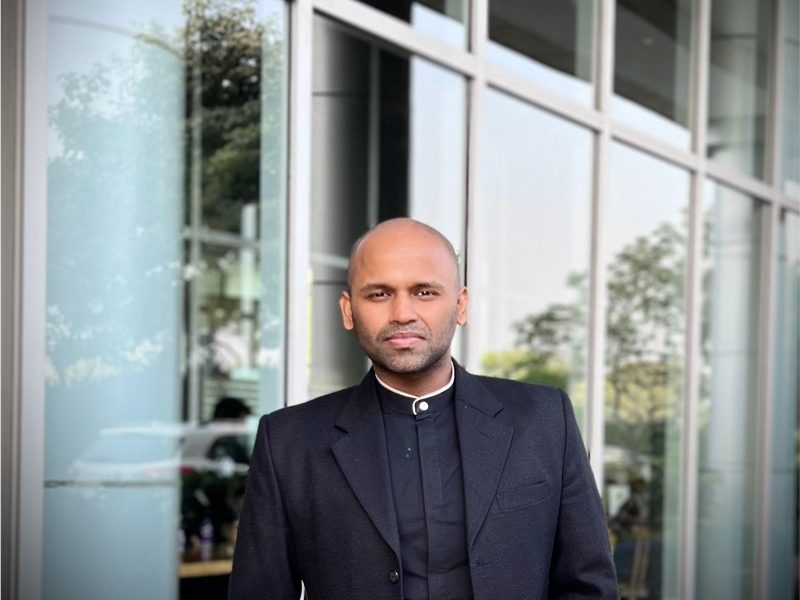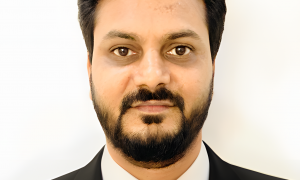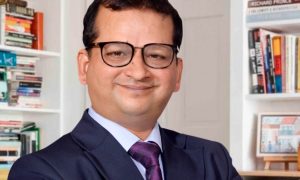This interview has been published by Priyanka Karwa and The SuperLawyer Team

Can you tell us about your journey and how you ended up practicing law, particularly in the areas of indirect tax cases, company law, intellectual property rights, and the Anti-Money Laundering Act?
I gravitated towards law as a career because I felt practicing law gives you an opportunity to articulate yourself and is an intellectual challenge. Our professors back in college (Faculty of Law, Delhi University), while taking lectures and discussing case laws, would often take us to the stories of courtroom duels. Being a First Generation lawyer, I had very little exposure to the field of law. However, hearing about the Legal Luminaries and their art of advocacy fascinated me a lot. While pursuing LL.B from Law Faculty at Delhi University, the stories of its stalwart alumni further pushed me towards Litigation. I guess that’s how I ended up practicing law after my LL.B. Being a legal practitioner, in the initial years of your practice may not be monetarily rewarding, but as that is taken care of as you grow in practice, additionally, the social recognition that comes with experience is a reward in itself.
The chamber I joined after graduation majorly had matters pertaining to Indirect Taxes and Financial Crimes. What attracted me the most about tax Statutes is that it touches practically everything and their dynamic nature. Benjamin Franklin famously said, “In this world, nothing can be said to be certain except death and taxes.” Since Tax touches almost everything and everyone, Tax law is equally important for individuals, small businesses, MSMEs, or big enterprises. That widens the scope of practitioners of Tax law to practice before different forums for a variety of clients.
Much is the same for corporate law, IPR, and Anti Money laundering. India, post-liberalization, has witnessed massive growth. The growing economy and greater integration with the world economy have necessitated laws to be in sync with international standards. Thus we have seen overhauls in Company law, Competition laws, the introduction of stringent Anti Money Laundering guidelines for financial/reporting entities, and an overhaul of IPR laws such as copyright, Patents, etc. Such changes have also created the need for specialist legal counsel.
You have extensive experience practicing before judicial and quasi-judicial authorities. Could you share some notable cases or experiences that have shaped your career as an advocate?
The last quarter decade has seen tremendous growth in the role of Administrative Law and Quasi-judicial bodies. The Tribunalisation has opened a great many avenues for legal practitioners. Soon after I joined the Profession, I started in tribunals and before the administrative adjudicating authorities. In Tribunals, we have both Judicial Members (who are mostly Retired judges or legal practitioners) and Technical Members (those retired from Governmental departments and are no longer attached to the Government). The challenge before the Departmental adjudicating authority is that they are the serving officers of the Department itself. This raises the issue of Official Bias, which appears to be one of the biggest challenges in the adjudication process. In one of my cases, objections were raised by the Governmental Audit department with respect to the benefit of duty exemption on manufactured goods. The client had availed the said exemption, which was based on the Department’s own Notification. At the pre-Show Cause Notice Consultation stage, we furnished the authorities, precedents, and genesis of the exemption notification and the concerned law. Despite having precedents in our favor, our contentions were dismissed, and the Department went on to issue the SCN. The Original adjudicating Authority also held against us, confirming the demand. However, in a concise judgment, the Tribunal upheld our contentions and ruled in our favor. The entire process took a little over five years. That not only increased the cost of business for the client but also blocked a part of his working capital.
The case being adjudicated by the serving officers is a phenomenon not unique to the law related to Taxation but also pervades other statutes. Take, for example, “The Prevention of Money Laundering Act 2002 (PMLA)”; the Director of the Financial Intelligence Unit- India has the power to issue the Show Cause Notice to the Reporting entities. The Director heads the investigation and adjudicates the SCN, which is the culmination of his own investigation. The cardinal principle that no one should be a judge in his own case goes for a toss. Even in the new Goods and Service Tax Act (GST Act), as in the erstwhile Central Excise Act, the adjudication proceeding is carried by the departmental officers depending upon monetary limits, and they discharge functions in the capacity of quasi-judicial officers.
Therefore, in the context of administrative adjudication, client counselling assumes great importance. The practitioner must give a candid and honest opinion to the best of his ability and also let the client know the probable results of anticipated or ongoing Litigation. This may help the client to decide the future course of action and be prepared for any adverse situation.
As an Advocate on Record before the Supreme Court of India, what are the key responsibilities and challenges you face in this role?
Practicing before the Apex court of a country is a matter of great honor and pride. But practitioners have to be mindful of the fact that they are pleading and arguing before, and sometimes against, some of the best legal minds in the country. Therefore once a year, the Supreme Court conducts an examination before enrolling an Advocate as an AOR. The examination, in addition to testing the legal understanding of the candidate, also ensures that the candidate is well-versed with the Court’s rules, practices, and procedures. But for me, the most significant duty of an advocate on record is Professional Ethics. The Apex court has frowned and has shown its discontentment with AORs who just lent their names to the pleadings without studying and verifying the same. Recently the Hon’ble Court raised concern over the indiscipline of AoRs who had filed pleadings in which derogatory remark was made about a High Court judge. Since an AOR is accountable for pleadings filed in the Apex court, he is expected to perform all due diligence. I, for example, make sure that I read every word of the draft and that the pleadings are concise and to the point. The synopsis filed along with pleadings should never be extravagant or too voluminous. Using simple language and sequential structuring of the facts and law are the main pillars of good drafting. One has to be mindful that in Fresh matters before the Supreme Court, 90 percent of the chances of getting notice issued are based on the pleadings alone.
Intellectual Property Rights seem to be an area of particular interest for you. How did your interest in this field develop, and how do you assist your clients in securing their intellectual property rights?
IPR has attracted me since the days of my college. The fact that something as trivial as a Pen, an object of our daily usage, has an IP history going back more than 100 years is truly astonishing. The case laws we studied during our college days, exposed me to the novel arguments raised in the context of IPR, which were very unlike those raised in other traditional subjects.
In fact, the first case I handled independently before the Delhi High Court dealt with the issue of Trademark infringement concerning the exhaustion of rights in parallel import cases. While researching the case, I went through several journals and articles. I specifically remember the one article written by Late Prof Shamnad Basheer, in which he examined the ambiguities in the law regarding the exhaustion of rights and Trademark infringement. These articles and case laws helped me realize the potential of issues concerning Intellectual Property Rights. Another aspect of intellectual Property that attracted me the most was the ethical aspect. The balancing of monopolistic rights and free and fair use of Intellectual Property in the face of rapid technological development is another area to watch out for.
As for my clients, especially start-ups and freelancers, my first line of questioning is about the protection of their Intellectual Property. There are many reasons why it should be done. A simple Google search will give you a number of reasons for protecting your IP rights.
You mentioned your dissertation coursework on “Sports and its Interaction with the Antitrust Law.” Can you elaborate on this topic and explain the connection between sports and antitrust law?
The origin of sports was exclusively a social phenomenon. With the increasing dominance of economics in the sporting arena, conflict with the law was only natural. One such apparent conflict we have seen the world over is the conflict between sports and antitrust laws.
Take, for example, Sporting Bodies/Federations. We have the ruling from the Competition Commission of India that the Sporting federations are Dominant entities in terms of Section 4 of the Competition Act, 2002. Therefore the question that comes to mind is whether the restrictions or the interference with the right of staff and players to carry on their Profession will amount to ‘Abuse of their dominant position.’
Since these federations enjoy power under the pyramid structure of sports governance, it gives a practical monopoly to them. However, these sports federations are unique in the sense that they are the sole players in the market and have no competition from any other quarter. One of my arguments was the concept of ‘Position of strength’ as envisaged in the definition; will it necessarily need to have another existing competitor in the market, or is it sufficient to cover a single entity in the market?
There are other hosts of issues such as broadcasting and merchandising rights, ownership and acquisition of player’s contracts by franchises, illegal cartel behavior and collusion between sporting Franchises, anti-bidding behavior between the sporting clubs, etc.
We have authorities from foreign jurisdictions concerning anti-competitive practices in sports, which are almost close to 100 years old. The Competition Commission of India has also caught up with the anti-competitive activities in Sports, but there is a host of issues with sports that we may see ripening into dispute in times to come.
Apart from your professional endeavors, you also mentioned your interest in sports. How has your involvement in sports influenced your career as an advocate, and what lessons have you learned from it?
I am a sports enthusiast. I like spending time on the field playing sports. I have played cricket for my school and college teams. Over the period of time as a practicing advocate, I have realized the importance of fitness and a sports-ready mind. Starting point for any good practitioner of law, like any other profession, has to be a fit mental and physical setup. Sports bring a sense of discipline, instill perseverance and resilience in a person, and teach about dealing with uncertainties in life. To that extent, sports resemble the Profession of advocacy where irrespective of the intensive preparation, on a given day; it may or may not work out for you. Even if a day doesn’t work for you, given you have a good mental and physical setup, it’s relatively easier to bounce back and be better prepared next time.
Could you share some insights into your role as a partner at LexAlly Advisory LLP? What motivated you to establish the firm, and what kind of Litigation and consultancy support do you provide to your clients?
We co-founded LexAlly Advisory LLP in 2015 with a vision to bring within its umbrella both the Litigation and the Advisory/consultancy part. The law firm was essentially set up, realizing the fact that it gives me more freedom and control over my working ecosystem. We started modestly and are trying to find our way. But it gives me immense satisfaction that besides the litigation work, we have been able to advise our clients in their day-to-day legal matters. What gives us greater satisfaction is the fact of dealing with new-age entrepreneurs who are coming out with all kinds of novel issues in their business. In a short period of time, we have advised our clients on issues such as business transfer/slump sale agreements, Taxation, IPR protection, general contract management, privacy policy, etc. With a rapidly changing legal landscape, we also try to keep ourselves updated with respect to the newer business models and potential legal complications with such business models. There may be challenges of great proportion running your own shop, but it also gives you that extra independence and flexibility to deal with any legal problem, and the satisfaction that comes after a good job is a reward in itself.
As someone with experience in providing legal consultancy to business corporations and start-ups, what are some common legal compliance issues that companies face, and how do you assist them in navigating these challenges?
Issues with the start-ups are basically domain related. For example, an App developer may face the issues of privacy policy and data protection. Another issue may be with respect to managing the IPRs related to the source code and object code of its application. And it’s a possibility that the owner of the App or IT Programme may not be the original author of such codes. Similarly, those working on disruptive technologies may need assistance in dealing with a host of issues such as IPR, Competition law, etc. The traditional business models need assistance with respect to advisory on issues of Taxation, dealing with administrative authorities, compliances under Company law, etc. Our primary goal is to guide them, provide consultancy to such entities or individuals, and avoid possible conflicts.
Having practiced law for over a decade, what advice would you give to fresh graduates who are considering a career in the legal Profession? What key lessons have you learned throughout your journey that you believe would be valuable for them to know?
Over time, I have realized that the work of a legal professional requires an analytical and objective thought process. It doesn’t matter whether he/she is working as a corporate counsel, working in a law firm, or having an independent practice. For those wanting to enter the arena of Litigation, patience and perseverance are the most essential tools. Withstanding criticism and maintaining the dignity of the Court is essential. For any new entrant in the Profession of advocacy, it is also essential to listen to those who have years of experience. I recall an interesting precept that I received early in my career. While I was arguing a case, the opposite counsel started interjecting me in a loud and unsavoury tone. Naturally, I got agitated and wandered off from the line of my argument. When the matter got over, a senior Bar member sitting in the courtroom very briefly counselled me, asking me to control my reactions, maintain composure, and give due respect to the Bench. These virtues are non-negotiable for advocates. The decorum of the Court must never be disturbed. That left an indelible mark on me.
A legal Practitioner shall always have the insight to learn and unlearn. There will come many occasions for a practicing advocate who might not get direct counselling or words of wisdom, but just by observing the legal ecosystem and watching court proceedings, one can learn so much. In the world of advocacy, experience is the best teacher.
Is there anything else you would like to share with our audience, or any final thoughts or advice you would like to leave them with?
My only advice to young advocates wanting to make a career in law is to always be thoroughly prepared. Only enter any courtroom or client counselling with thorough preparation of facts and law. Becoming a law expert may just not be enough, but keeping oneself updated with General Knowledge and current affairs is also important, as it goes a long way in developing the intellectual understanding of a legal practitioner.
Get in touch with Rahul Krishna-


























